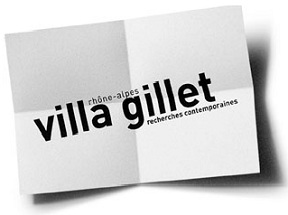RJ Ellory on crime stories
![[title-image]1332154738797[/title-image] ellory_1340282842510.jpg](https://cle.ens-lyon.fr/anglais/images/ellory_1340282842510.jpg/image_preview)
Roger Jon Ellory is a British thriller writer. He was born in June 1965 in Birmingham. Ellory cites Arthur Conan Doyle, Michael Moorcock, J. R. R. Tolkien and Stephen King as being some of the people who influenced his writing. His first novel to be accepted for publication, Candlemoth, was published in 2003 and was shortlisted for the CWA Ian Fleming Steel Dagger Award in the same year.
Les éditions Christian Bourgois publieront en novembre 2012 un recueil en français des textes écrits à l'occasion des assises du roman.
Who judges the crime?
Is the severity of the crime, even the crime itself, judged by the perpetrator or the victim? If judged by the perpetrator, would the punishment be more or less severe, for are we not our own worst enemies, our own most damning judge?
Morals are conceived to be those agreed-upon principles which deem certain acts or omissions contributory to the well-being of society, and other acts or omissions destructive. It is immoral to steal, to lie, to cheat, to kill. Such things violate the laws of the land. So what is ethics? Is ethics the wholly personal judgement as to what would be most contributory to survival? If one knows the truth, and yet revealing that truth would bring no benefit and great distress to someone, does withholding that truth make one a liar, or a friend? If something is stolen, and one steals it back, does that make one any less a thief than the original perpetrator?
And why are we so entranced and bewitched by the portrayal of crime, both in film and literature? Is it the puzzle we are challenged to solve before the denouement is revealed? Is it the vicarious thrill of seeing others come to harm, the quickening pulse, the anticipated demise or escape or rescue from harm? Or is it because we understand that knowledge of our fellow Man is vital to our own survival and success, and that killers and thieves and kidnappers and rapists are men also, and in reading of their psychology we somehow believe we are enhancing our own comprehension of the human condition?
Or are we simply voyeurs, deriving some sense of pleasure in witnessing the very worst the world has to offer?
Perhaps there is no single, simple answer. Life is people, nothing more nor less. We each view our own existence with a fluid perspective. Attitudes change constantly. Within a matter of moments an opinion can sway and turn: the enemy becomes a friend, the friend becomes an enemy. The act for which we would have granted unconditional forgiveness is suddenly the very worst sin. An act is taken against us, so easily overlooked when committed against another, and for that there is no pardon. We allow our ethical perspective, a purely personal issue, to influence our moral stance, a stance that should remain unwavering and constant. We judge by an ever-changing spectrum of standards, and as we change so do our core beliefs in what constitutes a crime.
So what is a crime?
Is it simply the act or omission that extends beyond our own ability to justify, something we could never see ourselves doing, irrespective of the stimulus or motivation? The child killer, the kidnapper, the hired assassin commit terrible crimes, as does a man who steals the life savings of an elderly couple. But the man who kills a rapist, the man who steals from a corrupt banker or politician is a hero, a man of the people. Such things appeal to the sense of vigilante within all of us.
We are all criminals, potentially, yet withholding our urges and impulses without any great effort. Others, however, seem utterly incapable of any constraint. At what point does thought transfer to action? At what point does self-censorship break down? It is the point at which one believes that committing the crime would be more contributory to personal well-being and survival than not committing the crime. That is all. That does not explain the rationale involved in such a decision, and one cannot hope to rationalise an irrational mind, but it defines the line across which one steps.
A crime – at least for the criminal – appears to guarantee survival, and thus it becomes an ethical choice.
Ethics lie senior to morals.
There lies the conundrum, and there lies the impossible question.
Who is there now to judge the crime?
Pour citer cette ressource :
RJ Ellory, RJ Ellory on crime stories, La Clé des Langues [en ligne], Lyon, ENS de LYON/DGESCO (ISSN 2107-7029), juin 2012. Consulté le 02/02/2026. URL: https://cle.ens-lyon.fr/anglais/litterature/litterature-britannique/rj-ellory-on-crime-stories



 Activer le mode zen
Activer le mode zen


